Lexus LBX vs Nissan X-Trail - Differences and prices compared
Compare performance (136 HP vs 213 HP), boot space and price (28300 £ vs 34200 £ ) at a glance. Find out which car is the better choice for you – Lexus LBX or Nissan X-Trail?
Costs and Efficiency:
Price and efficiency are key factors when choosing a car – and this is often where the real differences emerge.
Lexus LBX has a noticeable advantage in terms of price – it starts at 28300 £ , while the Nissan X-Trail costs 34200 £ . That’s a price difference of around 5880 £.
Fuel consumption also shows a difference: Lexus LBX manages with 4.50 L and is therefore evident more efficient than the Nissan X-Trail with 5.70 L. The difference is about 1.20 L per 100 km.
Engine and Performance:
Power, torque and acceleration are the classic benchmarks for car enthusiasts – and here, some clear differences start to show.
When it comes to engine power, the Nissan X-Trail has a distinct edge – offering 213 HP compared to 136 HP. That’s roughly 77 HP more horsepower.
In acceleration from 0 to 100 km/h, the Nissan X-Trail is distinct quicker – completing the sprint in 7 s, while the Lexus LBX takes 9.20 s. That’s about 2.20 s faster.
There’s also a difference in torque: Nissan X-Trail pulls significantly stronger with 525 Nm compared to 185 Nm. That’s about 340 Nm difference.
Space and Everyday Use:
Cabin size, boot volume and payload all play a role in everyday practicality. Here, comfort and flexibility make the difference.
Seats: Nissan X-Trail offers clearly perceptible more seating capacity – 7 vs 5.
In curb weight, Lexus LBX is noticeable lighter – 1280 kg compared to 1668 kg. The difference is around 388 kg.
In terms of boot space, the Nissan X-Trail offers decisively more room – 585 L compared to 332 L. That’s a difference of about 253 L.
When it comes to payload, Nissan X-Trail to a small extent takes the win – 574 kg compared to 475 kg. That’s a difference of about 99 kg.
Who wins the race?
The Nissan X-Trail proves to be is largely superior and therefore becomes our DriveDuel Champion!
Nissan X-Trail is the better all-rounder in this comparison.
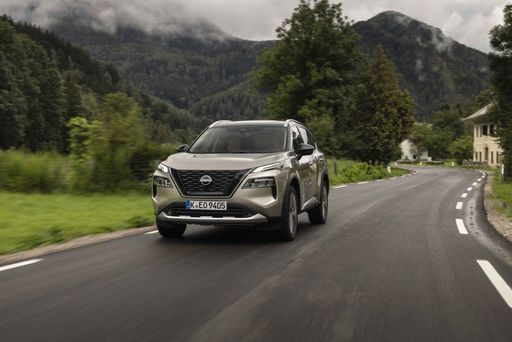
Nissan X-Trail
Costs and Consumption
View detailed analysis
Engine and Performance
View detailed analysis
Dimensions and Body
View detailed analysis
Lexus LBX
The Lexus LBX wraps premium touches and a surprisingly spacious cabin into a compact crossover that’s perfectly at home in town or heading out on longer drives. It wears the badge with quiet confidence, serving up a refined ride and clever packaging for buyers who want Lexus polish without shouting for attention.
details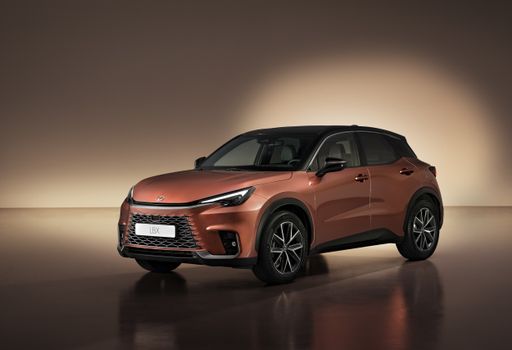
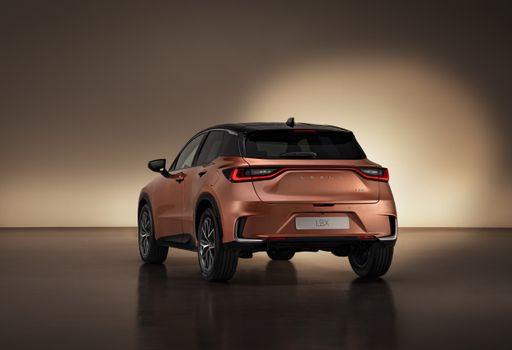
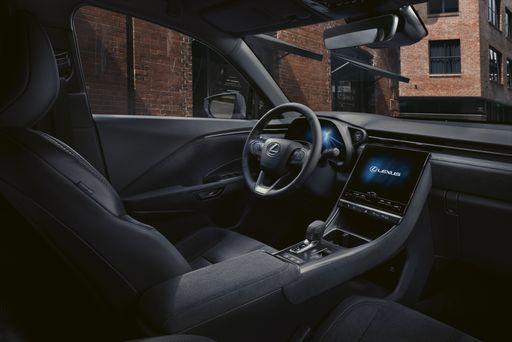
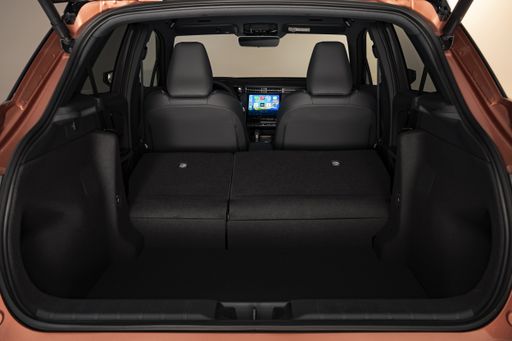
Nissan X-Trail
The Nissan X-Trail is a roomy, no-nonsense family SUV that mixes sensible practicality with a quietly modern look, making it an easy choice for busy lives and weekend escapes. It drives with calm confidence, delivers a comfortable ride and sensible tech, and won’t demand drama while doing the everyday heavy lifting.
details
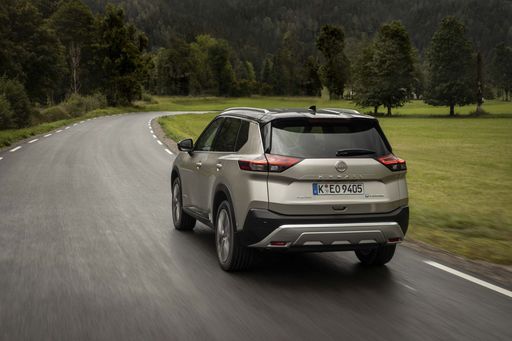
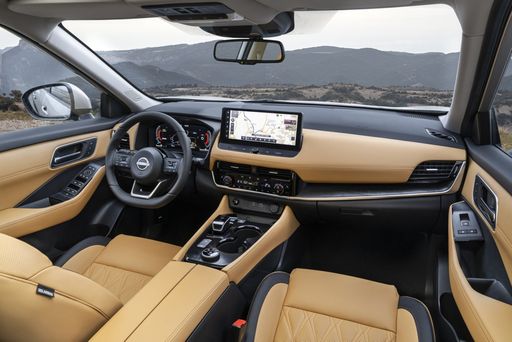
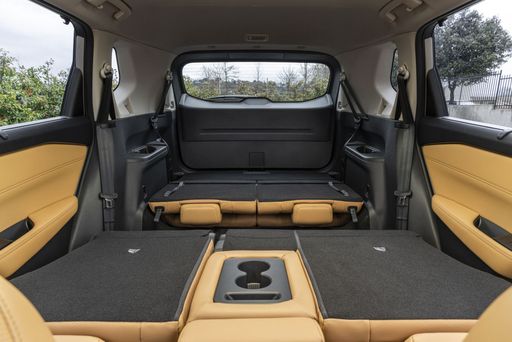
Costs and Consumption |
|
|---|---|
|
Price
28300 - 40000 £
|
Price
34200 - 50500 £
|
|
Consumption L/100km
4.5 - 4.8 L
|
Consumption L/100km
5.7 - 6.9 L
|
|
Consumption kWh/100km
-
|
Consumption kWh/100km
-
|
|
Electric Range
-
|
Electric Range
-
|
|
Battery Capacity
-
|
Battery Capacity
-
|
|
co2
102 - 110 g/km
|
co2
131 - 161 g/km
|
|
Fuel tank capacity
36 L
|
Fuel tank capacity
-
|
Dimensions and Body |
|
|---|---|
|
Body Type
SUV
|
Body Type
SUV
|
|
Seats
5
|
Seats
5 - 7
|
|
Doors
5
|
Doors
-
|
|
Curb weight
1280 - 1365 kg
|
Curb weight
1668 - 1961 kg
|
|
Trunk capacity
255 - 332 L
|
Trunk capacity
177 - 585 L
|
|
Length
4190 mm
|
Length
-
|
|
Width
1825 mm
|
Width
1840 mm
|
|
Height
1560 mm
|
Height
-
|
|
Max trunk capacity
992 - 994 L
|
Max trunk capacity
-
|
|
Payload
455 - 475 kg
|
Payload
432 - 574 kg
|
Engine and Performance |
|
|---|---|
|
Engine Type
Full Hybrid
|
Engine Type
Petrol MHEV, Full Hybrid
|
|
Transmission
Automatic
|
Transmission
Automatic
|
|
Transmission Detail
CVT
|
Transmission Detail
CVT, Reduction Gearbox
|
|
Drive Type
Front-Wheel Drive, All-Wheel Drive
|
Drive Type
Front-Wheel Drive, All-Wheel Drive
|
|
Power HP
136 HP
|
Power HP
163 - 213 HP
|
|
Acceleration 0-100km/h
9.2 - 9.6 s
|
Acceleration 0-100km/h
7 - 9.6 s
|
|
Max Speed
170 km/h
|
Max Speed
-
|
|
Torque
185 Nm
|
Torque
300 - 525 Nm
|
|
Number of Cylinders
3
|
Number of Cylinders
3
|
|
Power kW
100 kW
|
Power kW
120 - 157 kW
|
|
Engine capacity
1490 cm3
|
Engine capacity
1497 cm3
|
General |
|
|---|---|
|
Model Year
2025
|
Model Year
2025
|
|
CO2 Efficiency Class
C
|
CO2 Efficiency Class
F, D, E
|
|
Brand
Lexus
|
Brand
Nissan
|
What drivetrain options does the Lexus LBX have?
Available configurations include Front-Wheel Drive or All-Wheel Drive.




